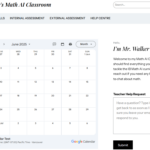In reading Graham and Roberts (2018), I am reminded of the all of my personal experiences with closed educational resources. Working through my B.Sc degree (physics), I had to learn extremely complex and niche concepts with little support. Since building local learning networks was not forefront in the minds of my professors, I reached out to the broader community: the internet. The internet, complete with everyone from part-time hobbyists to PhDs in astrophysics, were literally at my fingertips. Unfortunately, many of the pathways between myself and these experienced physics enjoyers were obscured by paywalls that I was unable to afford. One of my favourite resources, Chegg, was of tremendous help to such an extent I was willing to pay for a few months of it to make it through a particular challenging course.
An idea brought forward in the afformention paper is the concept of an open hub: “an organization point for the class that allows students to understand their challenge for content generation and organizes activit[ies].” An example of this from our open hub for EDCI 569 (Theory and Discource on Open Learning) is given below.

What I appreciate most about this style is it makes clear what we as students shoudld reflect on but makes no clear statement on the production of context. Should I ponder this while taking a walk? Should I write a blog post about it? Should I devote my life to writing a book on the subject? It makes clear that the goal is to consider these quesitons rather how to consider them. This concept is applicable to what an open hub could look like in my world for physics or math. Below is an except from the IB Diploma Program Subject Guide for Physics.

With some adjustment to the wording (curriculum guides are often not written in student-friendly langauge), these understandings could be given to students as daily checklists to ensure they are all paddling in the same direction. How could a physics student show that they understand the principle of conservation of energy? They could complete a pratice problem or perform a lab experiment; both satisfactory and appropriate methods to acquire knowledge and understanding. It would then be up to them to decide how to demonstrate what they’ve learned. While one student could record a video of them solving the problem as if they were a teacher while another could document an experiment in a lab report, both are meeting the expectations given above.
Two limitations to this approach in my context are time and standardization. In my subject, there are hundreds of bullet points like the ones given above which mean students only get to spend an hour on a group of them and then must move on. If we developed blog posts for every group or 3 or 4 understandings, the student workload would quickly get out of hand; moderation in this respect would be key – students would only be expected to blog perhaps once a unit or theme. The other limitation is the standardized tests the IB requires for their courses. While the guide leaves some room for interpretation, the final exams do not. There are certain methods and techniques that must be demonstrated on the exams to do well. Perhaps students could blog about these approaches and share them with each other.
Connections to the M.Ed Project
When connecting the concept of the open hub to potential new practices in my classroom, I can’t help but think of an other open resource I used during my time at university: stack exchange. When learning to code, I would often have over 20 tabs of stack exchange open. While learning new quantum physics concepts, my first visit was always to stack exchange. When the math wasn’t mathing: stack exchange. Just opening the site today brings back the best memories.

For the unitiated






